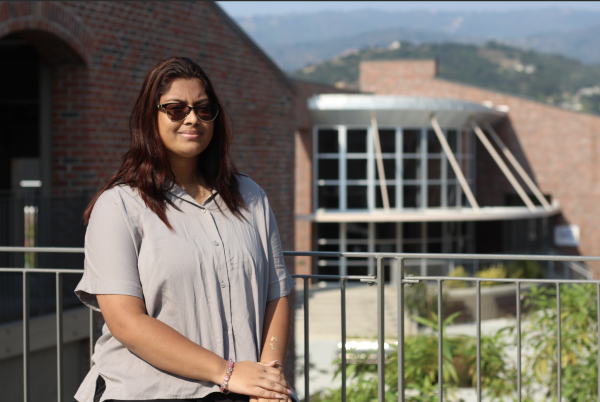Arousing Curiosity
Examining how curiosity surrounding sex and sexual education affects the MVHS community
Students often stifle their curiosity surrounding sex due to fear or an unfamiliarity of talking about sex.
November 17, 2022
Six in 10 American parents believe that sex is a taboo topic, according to Onepoll. This, according to the Times of India, can be attributed to both societal structures, such as the importance of privacy, and cultural norms, including the viewing of sex as something to only be talked about between the participating parties. Despite this stigma, however, biology teacher Lora Lerner notices that ninth graders are often very curious to learn about sex during their sexual education unit at the end of the year.
This increase in curiosity can be attributed to growing older as teenagers’ thinking processes begin to mature. According to Frontiers for Young Minds, a rise in hormones called sex steroids during puberty cause teenagers to have changes in appearance and activations in brain circuits that affect sexual behaviors — all of which contribute to an increased interest in sex.
Freshman Jay Zhang and senior Saloni Gupta both noticed that people tend to have candid discussions about sex at MVHS. Gupta explains that her family also has a similar dynamic, and she doesn’t feel awkward talking about sex with her family. She notes that if she has questions regarding health, she “been pretty lucky” to feel safe to discuss it with them.
“There’s the expectation that I won’t have sex until I’m in a healthy relationship,” Gupta said. “I think sex is something that I don’t think ‘Oh I’m gonna wait till marriage then do it.’ But it’s also not something I would do just for the sake of doing it.”
Familial perspectives on topics such as sex vary greatly, however, and Zhang’s family has a vastly different perspective on sex than Gupta’s. In contrast, Zhang explains that his family usually avoids the topic and only mentions it briefly.
Lerner has experienced this awkwardness about sex in her classroom, and attributes the behavior to the fact that people find having honest conversations difficult because they are not used to it. She also mentions that many sex ed curriculums paint sex as problematic, and students stifle their curiosity due to fear and an unfamiliarity with talking about sex openly.
“There’s a long history in this country of [teaching] sex in a way that’s very negative, and sometimes the entirety of it is ‘here’s all the bad things that can happen to you if you have sex,’” Lerner said. “I still have students who come [into high school] with that as the message they’ve carried with them.”
To combat this, Lerner tries to inform students about sex in a more positive way, cutting down on describing technicalities around STI’s and contraception. She explains that as long as people have the right resources, they can learn more about those things on their own.
Gupta mentions that although students can find resources about STDs in the media, her teachers’ explanations were far more helpful. She explains that the media often understates possible negative consequences of having sex, and her teachers’ clear lessons on STDs and their consequences helped her better understand the gravity of potential repercussions.
“I think [the sex ed unit] was helpful for [dispelling] the belief that ‘Oh, it’s just something you do without consequences and nothing really happens,’” Gupta said. “It was helpful for making reality clearer. This is everything you need to do to make sure you don’t have any negative consequences.’”
Lerner attempts to teach students how to clear up these misconceptions about sex and make the circumstances surrounding it more comfortable by not only educating them about technicalities surrounding safe sex, but also by teaching kids how to communicate using scenarios they might encounter as examples. She thinks communication is often underpracticed, and aims to teach students how to start hard conversations by modeling them in class and having them practice.
“You can’t escape communication — it’s important for everything, whether you need to talk to somebody about using condoms or about the quality of your relationships.” Lerner said. “ But even if people feel like [they’re] not quite ready to be thinking about romantic and sexual relationships, good communication really works on many other levels.”
She also mentions that having conversations with parents about sex also improves parent-child relationships, despite it being an awkward topic.
“Oftentimes, the feedback I get from parents is that they want us to talk about it because they know it can be hard to do it at home,” Lerner said. “Sometimes parents are like ‘I’ve been wanting to talk to them about this’ and students will tell me it wasn’t as bad as [they] thought and they actually had a good conversation. And that’s great because now you’re leaving that door open a little bit and it kind of helps break the ice.”
Zhang explains that although it might be beneficial, some people might not be comfortable talking about safe sex and consent, but it’s still important to be educated about it.
“[Sex education] is necessary and people should know it’s their choice, and they can choose what to do,” Zhang said. “And some people just don’t feel comfortable doing it, and some people might, and that’s okay.”
According to Lerner, another method for overcoming such taboos comes from students being able to educate themselves and eliminating negativity. She explains that advocating for body positivity and healthy communication within peer groups can help transform society’s attitude towards sex.
“This is an important part of our world, and we value the chance to learn more about it,” Lerner said. “And it matters how we treat each other, and if we can communicate and have positive relationships. It matters if we can communicate and have positive relationships with our parents. And I think changing the culture of your peer group to value that is one of the most powerful things you can do.”



















